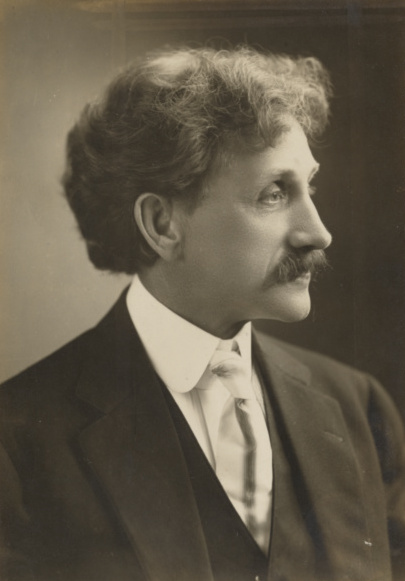We never take the time to put ourselves in the places of our victims. We never take the trouble to get over into their world, and realise what is happening over there as a result of our doings toward them. It is so much more comfortable not to do so—so much more comfortable to be blind and deaf and insane.
"The Psychology of Altruism", p. 304
The Universal Kinship (1906), The Ethical Kinship
J. Howard Moore Quotes
"The Ethics of Human Beings Toward Non-human Beings", pp. 281–282
The Universal Kinship (1906), The Ethical Kinship
"The Ethics of Human Beings Toward Non-human Beings", p. 279
The Universal Kinship (1906), The Ethical Kinship
"The Ethics of Human Beings Toward Non-human Beings", pp. 278
The Universal Kinship (1906), The Ethical Kinship
"The Ethics of Human Beings Toward Non-human Beings", pp. 276–277
The Universal Kinship (1906), The Ethical Kinship
"The Ethics of Human Beings Toward Non-human Beings", p. 276
The Universal Kinship (1906), The Ethical Kinship
Source: The New Ethics (1907), The Thesis of the New Ethics, p. 16
"Modern Ethics", pp. 268–269
The Universal Kinship (1906), The Ethical Kinship
"Egoism and Altruism", pp. 251–252
The Universal Kinship (1906), The Ethical Kinship
"Human Nature a Product of the Jungle", p. 246
The Universal Kinship (1906), The Ethical Kinship
"Conclusion", p. 233
The Universal Kinship (1906), The Psychical Kinship
Source: The New Ethics (1907), The Thesis of the New Ethics, p. 15
"The Common-Sense View", pp. 184–185
The Universal Kinship (1906), The Psychical Kinship
"The Conflict of Science and Tradition", p. 108
The Universal Kinship (1906), The Psychical Kinship
"Conclusion", p. 101
The Universal Kinship (1906), The Physical Kinship
"The Genealogy of Animals", p. 85
The Universal Kinship (1906), The Physical Kinship
"The Factors of Organic Evolution", p. 35
The Universal Kinship (1906), The Physical Kinship
"The Earth an Evolution", p. 35
The Universal Kinship (1906), The Physical Kinship
"Man an Animal", p. 17
The Universal Kinship (1906), The Physical Kinship
The Universal Kinship (1906), Preface
Source: Better-World Philosophy: A Sociological Synthesis (1899), Individual Culture, pp. 274–275
Source: Better-World Philosophy: A Sociological Synthesis (1899), Individual Culture, p. 275
Source: Better-World Philosophy: A Sociological Synthesis (1899), Individual Culture, p. 266
Source: Better-World Philosophy: A Sociological Synthesis (1899), Individual Culture, p. 264
Source: Better-World Philosophy: A Sociological Synthesis (1899), Individual Culture, p. 261
Source: Better-World Philosophy: A Sociological Synthesis (1899), Individual Culture, pp. 260–261
Source: Better-World Philosophy: A Sociological Synthesis (1899), Individual Culture, p. 256
Source: Better-World Philosophy: A Sociological Synthesis (1899), Individual Culture, p. 247
Source: Better-World Philosophy: A Sociological Synthesis (1899), Race Culture, p. 238–239
Source: Better-World Philosophy: A Sociological Synthesis (1899), Race Culture, p. 224
Source: Better-World Philosophy: A Sociological Synthesis (1899), Race Culture, pp. 221–222
Source: Better-World Philosophy: A Sociological Synthesis (1899), Race Culture, p. 210
Source: Better-World Philosophy: A Sociological Synthesis (1899), Race Culture, pp. 209–210
Source: Better-World Philosophy: A Sociological Synthesis (1899), Race Culture, pp. 208–209
Source: Better-World Philosophy: A Sociological Synthesis (1899), The Derivation of the Nature of Living Beings, pp. 200–201
Source: Better-World Philosophy: A Sociological Synthesis (1899), The Derivation of the Nature of Living Beings, pp. 191–192
Source: Better-World Philosophy: A Sociological Synthesis (1899), The Derivation of the Nature of Living Beings, pp. 189–190
Source: Better-World Philosophy: A Sociological Synthesis (1899), The Derivation of the Nature of Living Beings, pp. 176–177
Source: Better-World Philosophy: A Sociological Synthesis (1899), The Derivation of the Nature of Living Beings, p. 172
Source: Better-World Philosophy: A Sociological Synthesis (1899), The Derivation of the Nature of Living Beings, p. 171
Source: Better-World Philosophy: A Sociological Synthesis (1899), The Social Ideal, pp. 161–163
Source: Better-World Philosophy: A Sociological Synthesis (1899), The Social Ideal, p. 161
Source: Better-World Philosophy: A Sociological Synthesis (1899), The Social Ideal, pp. 159–160
Source: Better-World Philosophy: A Sociological Synthesis (1899), The Social Ideal, pp. 158–159
Source: Better-World Philosophy: A Sociological Synthesis (1899), The Social Ideal, pp. 157–158
Source: Better-World Philosophy: A Sociological Synthesis (1899), The Social Ideal, p. 155
Source: Better-World Philosophy: A Sociological Synthesis (1899), The Social Ideal, pp. 146–147
Source: Better-World Philosophy: A Sociological Synthesis (1899), The Social Ideal, p. 146
Source: Better-World Philosophy: A Sociological Synthesis (1899), The Social Ideal, p. 144
The fact that an animal is a human, that is, that he belongs to the hominine species of beings, entitles him, regardless of his imperfections, to some sort of consideration.
Source: Better-World Philosophy: A Sociological Synthesis (1899), The Social Ideal, p. 143
